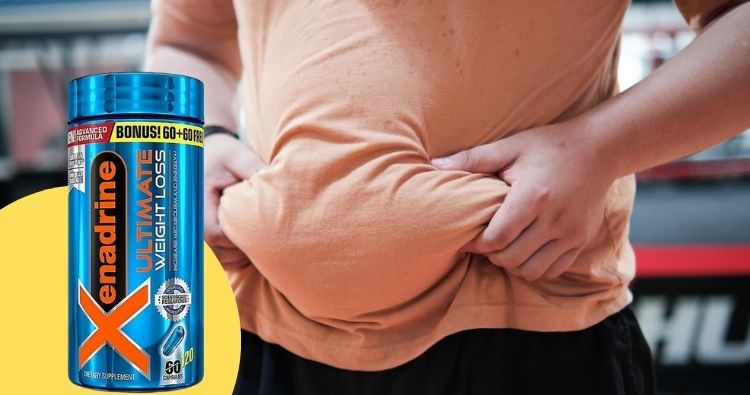To speed up weight loss, focus on a combination of a balanced diet and regular exercise. Incorporating healthy eating habits and increasing physical activity can contribute to successful weight loss.
Maintaining a healthy weight is often a priority for many individuals, but it can sometimes feel like an uphill battle. While there are no shortcuts or magic solutions, there are ways to speed up the weight loss process. By adopting a well-rounded approach that involves both a balanced diet and regular exercise, you can promote more efficient and effective weight loss.
This article will provide you with practical tips and insights on how to achieve your weight loss goals at a faster pace. Remember, consistency and dedication are key factors in your journey towards a healthier body.
Understanding Fat Burning
When it comes to weight loss, understanding how the body burns fat is crucial. By grasping the concept of fat burning, you can optimize your weight loss efforts and achieve your goals more effectively. In this section, we will explore the relationship between metabolism and fat burning as well as the factors that can affect the rate at which your body burns fat.
Metabolism And Fat Burning
Your metabolism plays a key role in the process of fat burning. Metabolism refers to the chemical reactions that occur in your body to convert food into energy. Essentially, it is the rate at which your body uses energy to function. Understanding how your metabolism works is important because it affects how efficiently your body burns fat.
A higher metabolism means that your body can burn calories at a faster rate, which can aid in weight loss. Several factors influence your metabolism, including age, gender, body composition, and activity level. Additionally, muscle mass plays a crucial role in boosting your metabolism. Having more lean muscle can help increase your basal metabolic rate, the number of calories your body burns at rest.
Factors Affecting Fat Burning
Various factors can affect the process of fat burning in your body. By being aware of these factors, you can make choices that will enhance your fat-burning potential.
Diet: The food choices you make have a significant impact on fat burning. A diet high in processed foods, sugary snacks, and unhealthy fats can slow down your metabolism and hinder fat burning. Instead, opt for a balanced diet rich in whole foods, lean protein, fruits, vegetables, and healthy fats to support your body’s fat-burning abilities.
Physical activity: Regular exercise not only helps you burn calories but also stimulates fat burning. Engaging in activities such as cardio exercises, strength training, and high-intensity interval training (HIIT) can boost your metabolism and increase fat burning both during and after your workout.
Sleep: Lack of quality sleep can disrupt your hormonal balance, leading to slower metabolism and reduced fat burning. Aim for 7-9 hours of uninterrupted sleep each night to support optimal fat burning and overall health.
Stress: Chronic stress can negatively impact your metabolism and fat burning. When your body is under stress, it produces cortisol, a hormone that can promote the storage of fat, particularly around the abdominal area. Implement stress management techniques such as exercise, meditation, and relaxation to help reduce stress levels and support fat burning.
Hydration: Staying hydrated is essential for fat burning. Drinking an adequate amount of water helps maintain optimal metabolic function and supports various bodily processes, including fat metabolism. Aim to drink at least 8 glasses of water per day to promote efficient fat burning.
By understanding the relationship between metabolism and fat burning and being aware of the factors that can affect fat burning, you can make informed choices to speed up your weight loss journey. Incorporating a healthy diet, regular exercise, quality sleep, stress management, and proper hydration will allow you to optimize your body’s fat-burning capabilities and achieve your desired results.
Developing An Effective Workout Routine
In order to achieve successful weight loss, it is crucial to develop an effective workout routine. A well-planned workout routine not only helps in burning calories but also in building strength and endurance. To maximize the results of your weight loss journey, it is important to incorporate various types of exercises into your routine. Let’s take a closer look at three key types of exercises: cardiovascular exercises, strength training, and high-intensity interval training (HIIT).
Cardiovascular Exercises
Cardiovascular exercises are excellent for burning calories, increasing heart rate, and improving overall cardiovascular health. These exercises can include activities such as brisk walking, running, cycling, swimming, dancing, or using cardio machines like treadmills or ellipticals. Incorporating at least 150 minutes of moderate-intensity cardiovascular exercises or 75 minutes of high-intensity cardiovascular exercises into your weekly routine can greatly aid in weight loss.
Strength Training
Strength training is crucial for weight loss as it helps in building lean muscle mass. More muscle equates to increased metabolism, even while at rest, resulting in more calories burned. Strength training exercises can include weightlifting, bodyweight exercises, or using resistance bands. Aim for at least two to three strength training sessions per week, focusing on major muscle groups such as legs, arms, back, chest, and core. Start with lighter weights and gradually increase as your strength improves.
High-intensity Interval Training (hiit)
High-Intensity Interval Training (HIIT) is a time-efficient and effective way to accelerate weight loss. HIIT involves short bursts of intense exercises followed by brief periods of rest. These intense exercises can include activities like sprinting, jumping jacks, burpees, or mountain climbers. The combination of high-intensity and short recovery periods helps in boosting metabolism and burning calories long after the workout has finished. Aim for at least two to three HIIT sessions per week, ensuring each session lasts around 20-30 minutes.
Eating For Weight Loss
Losing weight can be a challenging journey, but understanding how to eat for weight loss is a crucial step towards reaching your goals. By focusing on creating a caloric deficit, choosing nutrient-rich foods, and implementing effective meal planning and portion control strategies, you can speed up your weight loss progress. Let’s delve into each aspect to help you start making healthier choices and achieve the results you desire.
Creating A Caloric Deficit
One of the essential components of weight loss is creating a caloric deficit. This means consuming fewer calories than your body needs for its daily activities, forcing it to tap into stored fat for energy. To achieve this, consider the following:
- Reduce portion sizes: Aim to eat smaller portions during meals and snacks to control your calorie intake.
- Avoid empty calories: Minimize the consumption of foods and beverages high in added sugars and saturated fats, as they tend to be high in calories while offering little nutritional value.
- Focus on whole foods: Opt for nutrient-dense options such as fruits, vegetables, lean proteins, whole grains, and healthy fats. These foods will not only keep you satisfied longer but also provide essential vitamins and minerals your body needs.
- Monitor your intake: Tracking your daily calorie intake can help you stay accountable and make adjustments as needed. Utilize smartphone apps or online resources to simplify the process and ensure accurate measurements.
Choosing Nutrient-rich Foods
When it comes to weight loss, not all calories are created equal. Prioritizing nutrient-rich foods can help support your weight loss journey by ensuring you receive the necessary nourishment while keeping your calorie intake in check. Focus on:
- Incorporating lean proteins: Protein is important for muscle preservation and satiety. Include sources such as chicken, fish, beans, and tofu in your meals and snacks.
- Emphasizing fruits and vegetables: These low-calorie, high-fiber options are packed with essential vitamins, minerals, and antioxidants. Aim for a colorful variety to maximize nutritional benefits.
- Choosing whole grains: Opt for whole grains like quinoa, brown rice, and whole wheat bread. They are rich in fiber and provide sustained energy throughout the day.
- Adding healthy fats: Incorporate sources of healthy fats such as avocados, nuts, seeds, and olive oil. These fats can promote satiety, enhance flavor, and support overall well-being.
Meal Planning And Portion Control
Implementing effective meal planning and portion control strategies can make a significant difference in your weight loss efforts. Consider the following tips:
- Plan ahead: Dedicate some time each week to plan your meals and snacks. This will help you stay organized, make healthier choices, and avoid impulsive food decisions.
- Use smaller plates and bowls: Downsize your dinnerware to trick your brain into perceiving larger portions while consuming fewer calories.
- Be mindful of condiments: Sauces, dressings, and spreads can add extra calories to your meals without significant nutritional value. Opt for low-calorie options or use them sparingly.
- Listen to your body: Pay attention to your hunger and fullness cues. Eat slowly, savor each bite, and stop eating when you feel satisfied, not overly full.
By implementing these strategies and prioritizing a caloric deficit, nutrient-rich foods, and effective meal planning and portion control, you can optimize your weight loss journey and achieve the results you desire. Remember, small changes and consistent efforts can lead to significant progress over time.
Lifestyle Changes For Accelerated Fat Burning
Lifestyle changes play a crucial role in accelerating fat burning and achieving weight loss goals. By making certain adjustments to your daily routine, you can supercharge your metabolism and enhance your body’s ability to burn fat. In this section, we will explore three key lifestyle changes that have a significant impact on accelerated fat burning.
Getting Sufficient Sleep
Adequate sleep is often overlooked when it comes to weight loss, yet it is a critical factor in maintaining a healthy metabolism. When you don’t get enough sleep, your body’s hormonal balance is disrupted, leading to an increased appetite and decreased ability to burn fat effectively. Aim for 7-9 hours of quality sleep each night to support optimal fat burning.
Managing Stress
Stress can sabotage your weight loss efforts by triggering the release of cortisol, a hormone that promotes fat storage, especially around the abdominal area. Incorporate stress-management techniques into your daily routine, such as meditation, deep breathing exercises, or engaging in activities that you find enjoyable. By reducing stress levels, you can help your body prioritize fat burning over fat storage.
Hydration
Proper hydration is essential for efficient fat burning. When you’re dehydrated, your metabolism slows down, making it harder for your body to burn calories. Aim to drink at least 8 glasses of water per day, and more if you’re engaging in intense exercise. Additionally, staying hydrated can help curb cravings and promote satiety, preventing overeating.
Tracking Progress And Staying Motivated
Track your weight loss progress and maintain motivation with practical tips and tricks. Discover effective techniques to speed up your weight loss journey and achieve your goals easily.
Setting Realistic Goals
When embarking on a weight loss journey, it’s essential to set realistic goals that you can work towards. Setting achievable targets helps to keep you motivated and prevents feelings of disappointment or frustration. Instead of aiming for an unrealistic weight loss rate, focus on gradual and sustainable progress. For example, aiming to lose 1-2 pounds per week is a practical and healthy goal.
Keeping A Food And Exercise Journal
Keeping a journal can be a powerful tool for weight loss. By tracking your food intake and exercise routine, you gain valuable insights into your habits and behaviors. This information allows you to identify areas for improvement and make necessary adjustments. Additionally, writing everything down creates a sense of accountability, helping you stick to your goals. Use a physical journal or try one of the many available mobile apps to conveniently track your progress on the go.
Celebrating Milestones
Recognizing and celebrating your weight loss milestones is crucial for staying motivated throughout the journey. These milestones can be small achievements like fitting into a smaller size of clothing or reaching a certain number of pounds lost. Celebrating these moments, no matter how small, reinforces your progress and boosts your confidence. Treat yourself to something special, like a new workout outfit or a relaxing spa day, as a way to reward yourself for your hard work and dedication.
Frequently Asked Questions Of Weight Loss How To Speed Up
How Can I Speed Up My Weight Loss Journey?
To speed up your weight loss, focus on increasing your daily physical activity, sticking to a healthy and balanced diet, and getting enough sleep.
Are There Any Specific Foods That Can Help Me Lose Weight Faster?
Yes, certain foods like leafy greens, lean proteins, whole grains, and fruits can support weight loss by boosting your metabolism and keeping you full for longer.
Can I Speed Up My Weight Loss By Following A Specific Diet Plan?
While following a well-balanced diet plan can aid in weight loss, there’s no one-size-fits-all approach. Consulting a nutritionist can help you customize a diet plan that suits your unique needs and goals.
Conclusion
To sum it up, speeding up weight loss requires a combination of healthy habits, dedication, and consistency. By focusing on a balanced diet, regular exercise, managing stress, and getting enough sleep, you can rev up your metabolism and achieve your weight loss goals.
Remember, there is no one-size-fits-all approach, so choose the strategies that work best for you and stay committed. With determination and perseverance, you can make sustainable changes and enjoy a healthier, happier lifestyle. Let’s embark on this journey together!
{ “@context”: “https://schema.org”, “@type”: “FAQPage”, “mainEntity”: [ { “@type”: “Question”, “name”: “How can I speed up my weight loss journey?”, “acceptedAnswer”: { “@type”: “Answer”, “text”: “To speed up your weight loss, focus on increasing your daily physical activity, sticking to a healthy and balanced diet, and getting enough sleep.” } } , { “@type”: “Question”, “name”: “Are there any specific foods that can help me lose weight faster?”, “acceptedAnswer”: { “@type”: “Answer”, “text”: “Yes, certain foods like leafy greens, lean proteins, whole grains, and fruits can support weight loss by boosting your metabolism and keeping you full for longer.” } } , { “@type”: “Question”, “name”: “Can I speed up my weight loss by following a specific diet plan?”, “acceptedAnswer”: { “@type”: “Answer”, “text”: “While following a well-balanced diet plan can aid in weight loss, there’s no one-size-fits-all approach. Consulting a nutritionist can help you customize a diet plan that suits your unique needs and goals.” } } ] }









Leave a Reply